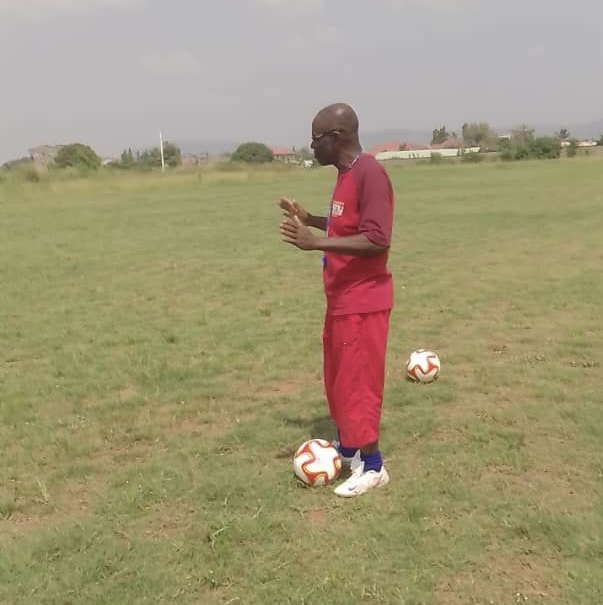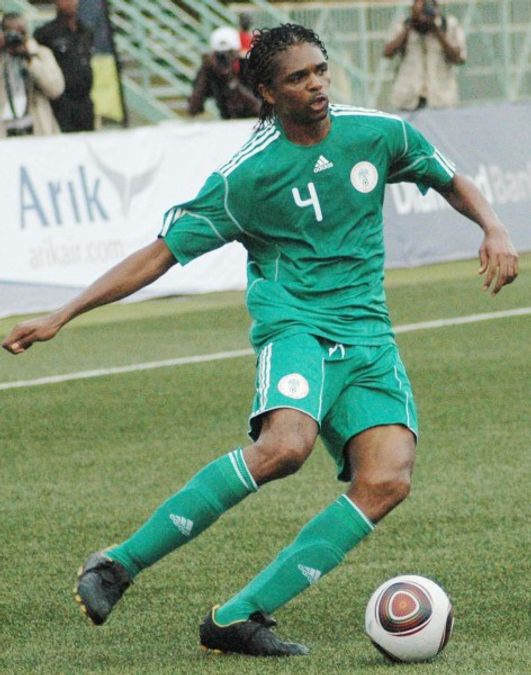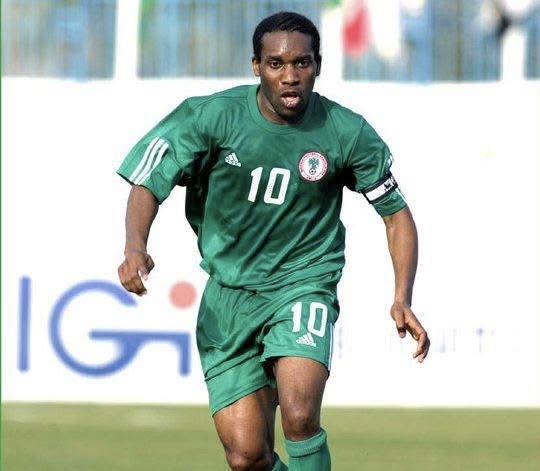At no point has African football lacked rumours. When taken through the protocols of a polygraph, many widespread beliefs about African football and the profiling of African footballers have been found wanting. Fittingly, even the epithet, “a lie can travel halfway around the world while the truth is still putting on its shoes,” in an ironic and self-fulfilling prophecy, was falsely attributed, reinforcing the message it communicates . While most rumours require intense research to be dispelled, in the case of African football, certain talents, like Mohammed Polo were the arrows shot to tackle the false, stereotyped profiling of African footballers. No longer can it be gainsaid that, besides strength and athleticism, African football is deluged with talents who possess skill and technique.

Mohammed Polo’s career peaked as far back as the 70s, an era where football had one less bug to worry about: statistics. Off the shackles and overcomplexities of mind-numbing numbers, minds were the best metrics, and eyes, the best juries in assessing the beautiful games of football. Yet, in such periods of straightforward, purist evaluation, the Ghanaian got a moniker-–the dribbling magician-–not for his physique or pace, but for his display of skill and technique that soon took him beyond the shores of Africa.
His magic and dribbling were means to an end, reinforcing it in his early days with an unmatched clinicality in front of goal. As a 17-year old left winger, the 1975 Ghanaian Footballer of the Year joined Hearts of Oak, where he scored a whopping 145 goals in 232 appearances over six years. Even as a teenager, he was a menace in the Ghanaian Premier League, forming the “fearsome five” along with Peter Lamptey, Anas Seidu, Mama Acquah and Robert Hammond. The 1978 African Cup of Nations winner and Team of the Tournament awardee moved to Al Wasl, Dubai in 1979 and went on to have two more spells with Hearts of Oak and brief stints in FC 105 Libreville, Shell FC and Great Olympics.

Polo’s flair, skill, technique and understanding of the game as far back as five decades ago was proof that the African talent pool isn’t just an assemblage of muscular figures and speed merchants, but a collection of a variety of talents that fit into diverse profiles. This point is further underscored by the fact that Mohammed Polo isn’t a lone ranger in this course. Numerous players from Africa have found themselves embodying profiles that the unobservant would deem European or South American.

Two-time African Player of the Year, Nwankwo Kanu—a featherweight from a supposed descent of heavyweights—like Polo, had his strengths manifest in his technical abilities, speed and ball control rather than his muscles. If the generic profiling of African players is sustained, Kanu’s physical strength was the Judas that betrayed his African origin. Yet, with his ballet-like balance, the former Arsenal striker danced through defenses and created goalscoring opportunities both for himself and others.
His countryman, Austin Jayjay Okocha—the man so good that he was named twice—likewise, was no slouch in the business of dribbling and magic making. In fact, former Ballon d’Or winner, Ronaldinho Gaucho waxed lyrical about Okocha’s football skills, regarding him as a melodic tune that made the round leather ball groove as he wished. Whatever depreciative remark was induced by his end product, which isn’t a criterion for the problematic profiling, he rebutted with a level of skill and technical ability that reechoed African football as a coat of many colours. The kind of reiteration that gave truth its sangfroid while rumours toured the world.

Bruising the corrective efforts of these outliers, African football has existed mainly in service to European professional football. A global sports trade centre has been headquartered in Europe, where Europe looks to Africa for a certain profile of players, and Africa, selfdestructively has built itself mainly for this purpose. When scouts tour Sub-Saharan Africa, the prospect has to be a striker as tall, agile and strong as Didier Drogba; a gigantic, commanding midfield presence like Yaya Toure, and a defender as towering, powerful and hardened as Taribo West, against which he is deemed unfit for European football. The attraction of Europe towards this kind of players has shaped the crop of talent that emanate from African football academies and the style of play of aspiring African footballers.
A keener look will unveil a bitter reveal about the profile of African players: there seems to be more strong and fast African players and less technical and magical ones. But it’s only a consequence of this false narrative. Technical African players are deemed second-best, while being discouraged to maintain such playing style with the notion that the market only finds the fast and strong attractive. As such, many suppress their skill while placing their strength and speed on the fore, and the rest end up finding no place for themselves in the world of football.
The African national team coaches have also mired the waters by focusing on the African players on home soil for strength and athleticism, while the African players bred in Europe are brought in for technique. It’s reflective of why the continent produces more Victor Wanyamas and fewer Mohammed Polos.
Africa is bereft of talent because it overlooks Africa. And so is the fate of the global sports trade centre in Europe as well. In reality, Africa isn’t bankrupt of talents with flair and creativity, only that those talents are fast becoming extinct. Like with Mohammed Polo, they need some representation on the global stage, they need an identity, they need a voice. They need the truth to put on its shoes, get some wings and fly as far as the rumours have flown, reminding the world that the commonness of a certain ilk of African players doesn’t mean the others do not exist.








